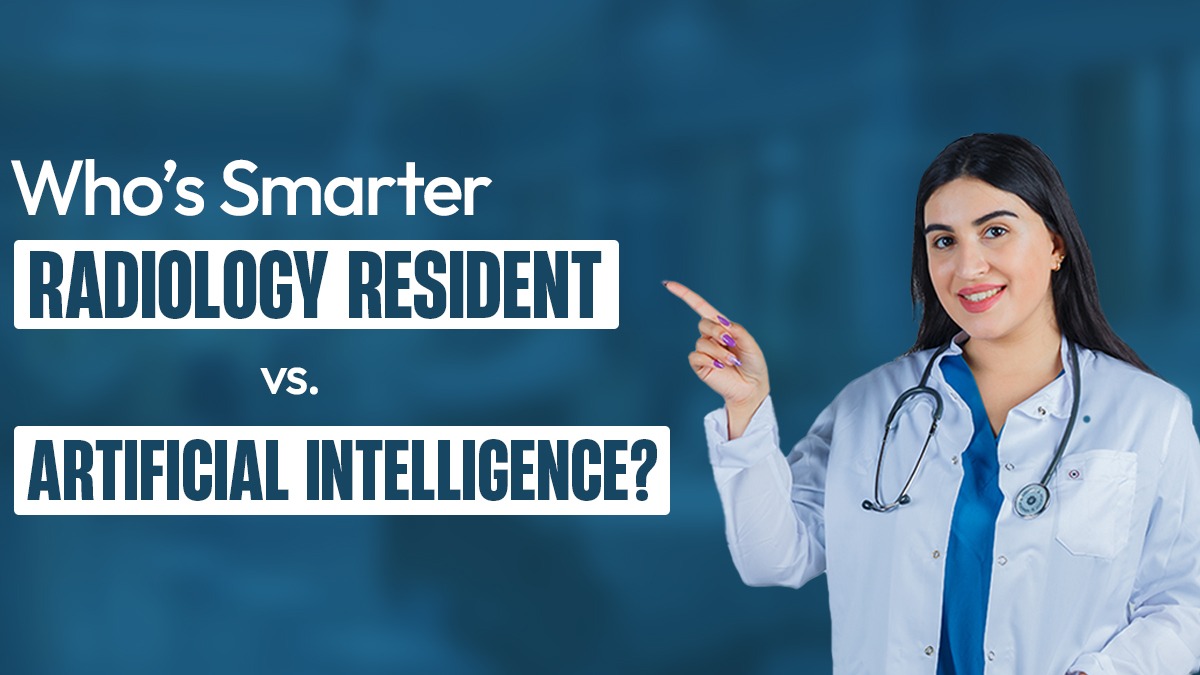Estimated reading time: 3 minutes
The world of radiology is buzzing with a new question: Can artificial intelligence be smarter than a radiology expert?
From spotting subtle fractures to detecting hidden tumours, artificial intelligence programs are becoming faster and sharper. But does that mean the future belongs to machines? Not so fast.
Let’s discuss the most curious question of these days:
1. The Power of Radiology Residents
Each radiology expert is on duty for years in a challenging, demanding radiology residency. They don’t only learn to interpret scans, they learn to think like a radiologist.
They work with top radiology professors, attend daily case conferences, work on real patients, and experience intricate clinical situations. It’s not a matter of merely viewing images—it’s clinical thought, patient history, differential diagnoses, and decision-making.
And that’s something no algorithm can really excel at.
2. What AI Does Best?
Artificial intelligence software is certainly impressive, no doubt about it.
They scan thousands of pictures a minute. They never sleep. They never forget. They identify patterns quicker than most people. Indeed, many AI systems are now being employed in hospitals for rapid screenings, raising alarm cases, and minimising reporting time.
In a nutshell, AI is an excellent aide—but it yet fails to have the clinical mind of a human radiologist.
3. Real-Life Radiologist Isn’t about Pattern Recognition
A patient presents with chest pain. AI may point out a lung nodule. But the radiology resident puts it into context with prior scans, lab results, symptoms, and the reason for the scan. They might even call the referring physician to learn more. That’s the practice of radiology experts. And that’s where humans outdo machines—every time.
4. Why Radiology Experts Still Matter?
In the era of AI, why do we still require a radiology expert? See, AI just can help, but AI can’t manage uncertainty, unusual cases, or medical judgment. It can’t facilitate discussions or train juniors. And certainly, it can’t substitute for the profound understanding gained from years of hands-on experience in a radiology doctor residency.
AI may assist, but it cannot substitute.
5. The Future: Radiology Doctor + AI
The brightest idea? Don’t compete with AI—combine with it.
Tomorrow’s radiologists are already learning how to work with AI. The radiology residents of the future will utilise AI to work more efficiently, smarter, and faster, while still trusting in their clinical acumen. That’s the win-win situation.
Final Takeaway
AI is good in some scenarios, but a trained radiologist is great and sage.
When they team up, patients receive the best of both worlds—speed and sensitivity, precision and perspective.
Who’s smarter, then? The person who knows how to operate both brains, human and artificial.

